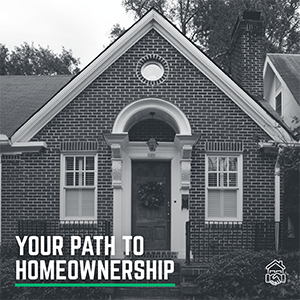
For many Americans, student loans represent one of the largest ongoing financial commitments. Balancing those payments with other goals—such as saving for retirement, paying down credit cards, or building an emergency fund—can make the idea of homeownership feel out of reach.
But here’s the good news: carrying student loan debt doesn’t automatically prevent you from buying a home. In fact, many first-time homebuyers successfully purchase houses while continuing to pay down their education loans. The key is understanding how your loans factor into the mortgage process, and how to position your finances for success.
At BankFirst, we believe education should never be a barrier to opportunity—including the opportunity to own a home. Let’s walk through the major factors to consider if you’re hoping to buy a home while managing student debt.
When lenders review a mortgage application, they look at the full financial picture: income, credit history, savings, and total monthly debt. Student loan payments are treated just like car loans, credit cards, or other recurring obligations.
That means you can still qualify for a mortgage even with significant student debt—as long as your overall finances remain within an acceptable range. Many first-time buyers carry between $30,000 and $100,000 in student loans and still qualify for financing.
The difference often comes down to ratios, credit health, and savings.
One of the most important metrics in the mortgage process is your debt-to-income (DTI) ratio—the percentage of your gross monthly income that goes toward debt payments.
A DTI of 36% or less is generally considered strong.
Higher ratios may still qualify, depending on your credit profile and the type of loan program.
If your student loan payments push your DTI too high, your buying power may be limited. On the other hand, if your payments are relatively modest compared to your income, your student debt may not significantly impact what you can afford.
Your credit score influences both your eligibility and the interest rate you may receive. Timely student loan payments can actually strengthen your score, showing lenders that you are a reliable borrower. Missed or late payments, however, can make it harder to qualify.
If you’re planning to buy a home in the near future, staying current on student loans—and any other accounts—will help protect and improve your credit profile.
Student loan payments can compete with your ability to save, but even modest savings can open doors.
Some loan programs require as little as 3% down.
VA loans and certain assistance programs may even offer 0% down options.
Having more money saved can give you flexibility—not just with the down payment, but also with closing costs, moving expenses, and home repairs.
Creating a savings plan that allows you to build a down payment fund while keeping up with your student loans is possible with careful budgeting.
Get Pre-Qualified Early
Pre-qualification gives you clarity about how your loans affect your eligibility. At BankFirst, pre-qualification is a quick and no-obligation way to understand what you may be able to borrow.
Check Your Credit Report
Make sure your student loans are being reported accurately. Address any errors and work on improving your score if needed by paying bills on time and reducing other debts.
Reduce Other Debts
Paying off smaller obligations, such as credit cards or personal loans, can lower your DTI and strengthen your application.
Consider Assistance Programs
Many first-time buyers qualify for down payment assistance (DPA) programs, which can make purchasing a home more affordable—even while repaying student loans.
Explore Repayment Options
If your student loan payments feel unmanageable, an income-driven repayment plan may help lower your monthly obligations. This can free up room in your budget and improve your DTI.
Large balances can sound intimidating, but lenders are more focused on the required monthly payment than the total balance. A well-structured repayment plan, paired with steady income and responsible financial habits, can still make homeownership possible.
The important question is not “How much debt do I have?” but rather, “Can I comfortably afford both my student loan payments and a mortgage each month?”
This decision depends on your individual circumstances. Ask yourself:
Do I have enough saved for a down payment?
Can I comfortably cover both my student loan payment and a mortgage?
Am I financially ready to take on the responsibilities of homeownership?
If the answer to all three is yes, pursuing homeownership may be the right move—even before paying off your student loans in full.
Student loan debt can make financial planning more complex, but it doesn’t have to stand in the way of your homeownership goals. With the right preparation, budgeting, and professional guidance, many borrowers with student loans are able to purchase homes that fit both their dreams and their financial realities.
At BankFirst, our team is here to help you evaluate your options, understand how your student loans may affect the mortgage process, and find a path toward homeownership that works for you.
Ready to explore your options? Contact a BankFirst Mortgage Loan Officer today and take the first step toward owning your home.